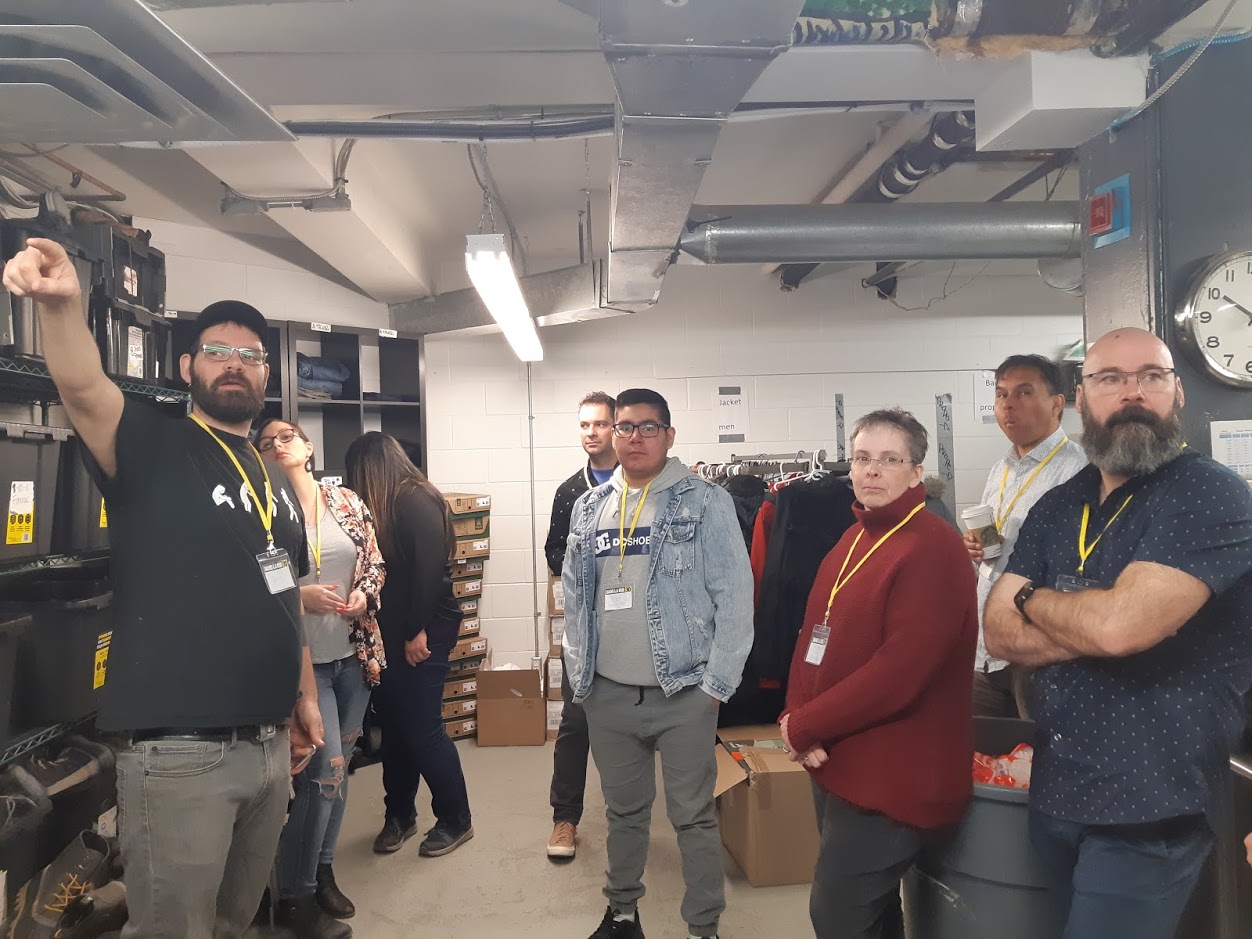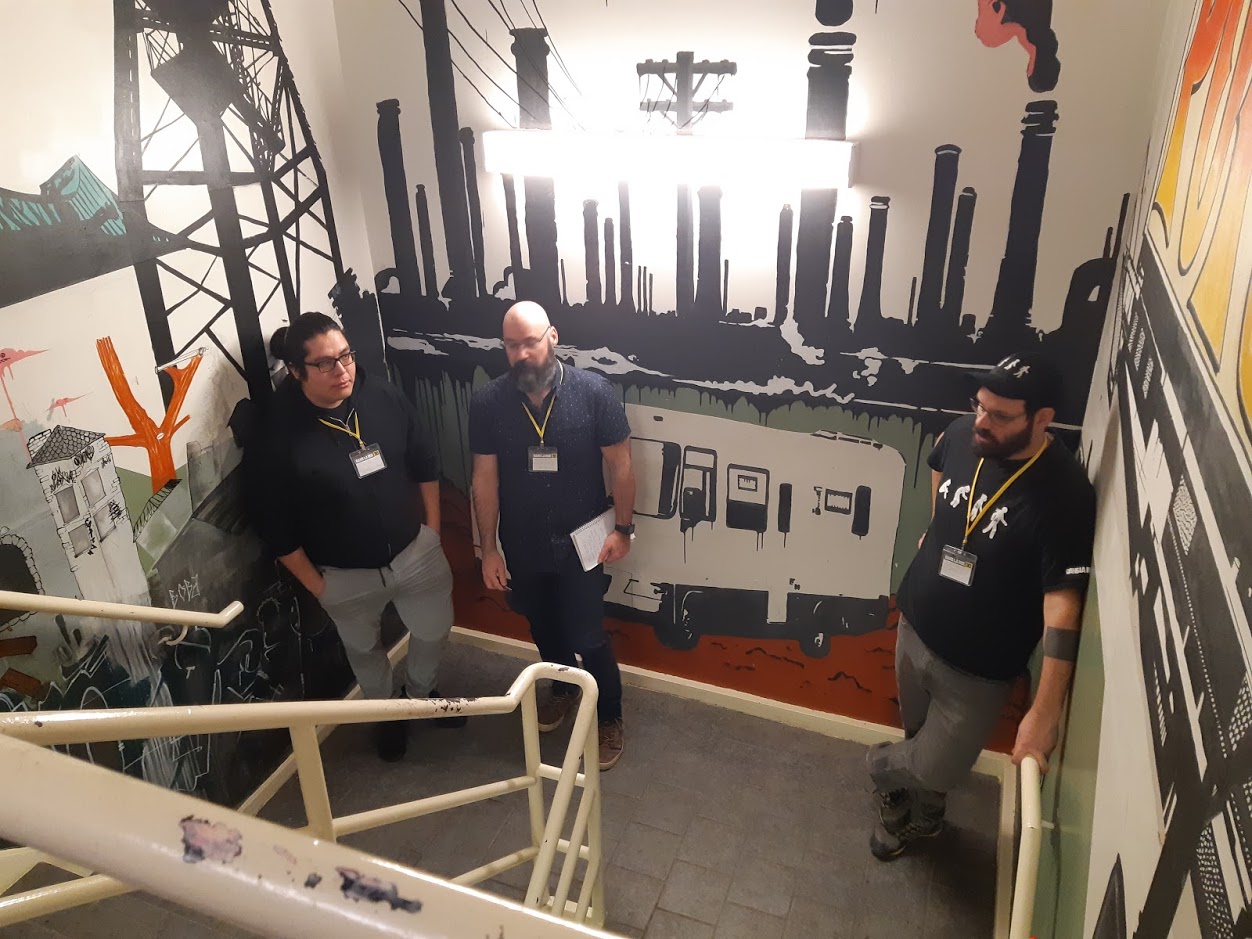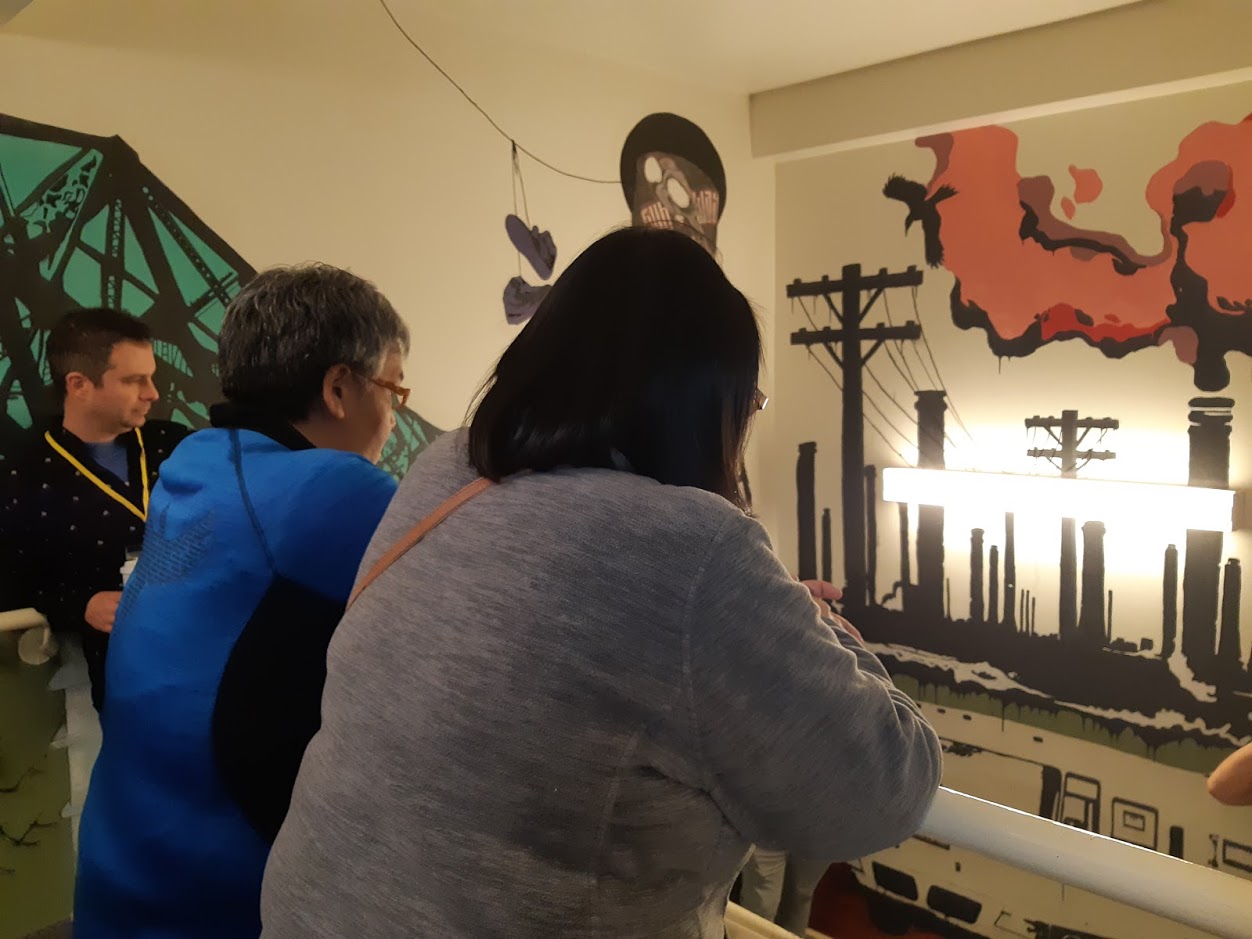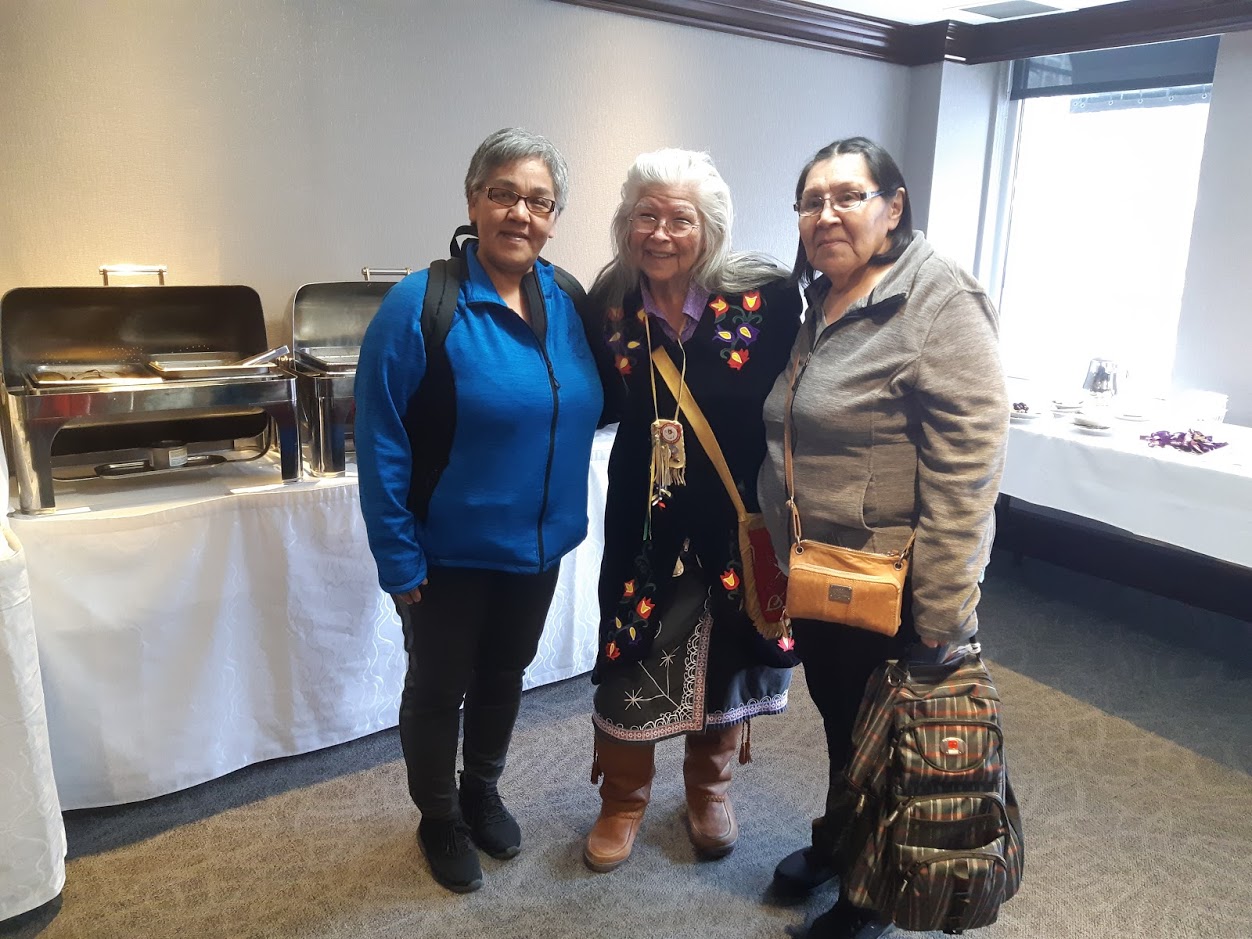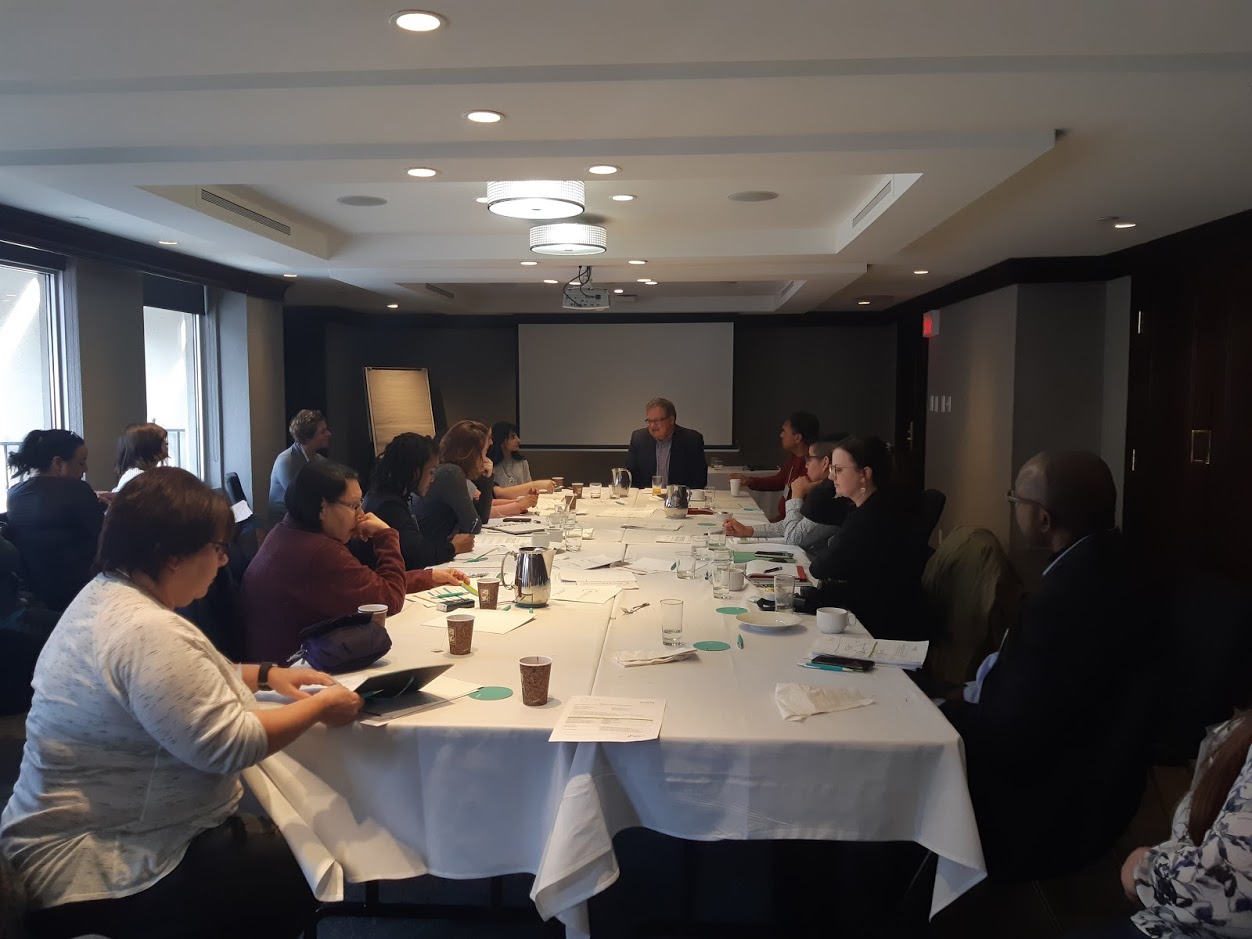Indigenous Council
Indigenous Council members lead ACCESS Open Minds’ efforts to shift youth mental health service delivery towards more culturally competent care that is anchored in youth’s resiliency. The Council provides a unique space for Elders, youth, and site leads from Elsipogtog First Nation (New Brunswick), Eskasoni First Nation (Nova Scotia), Aaschihkuwaataauch (Mistissini, Québec), Sturgeon Lake First Nation (Saskatchewan), Purvirnituq (Nunavik,Québec), and Ulukhaktok (Inuvialuit Settlement Region, Northwest Territories) with the aim of knowledge sharing.
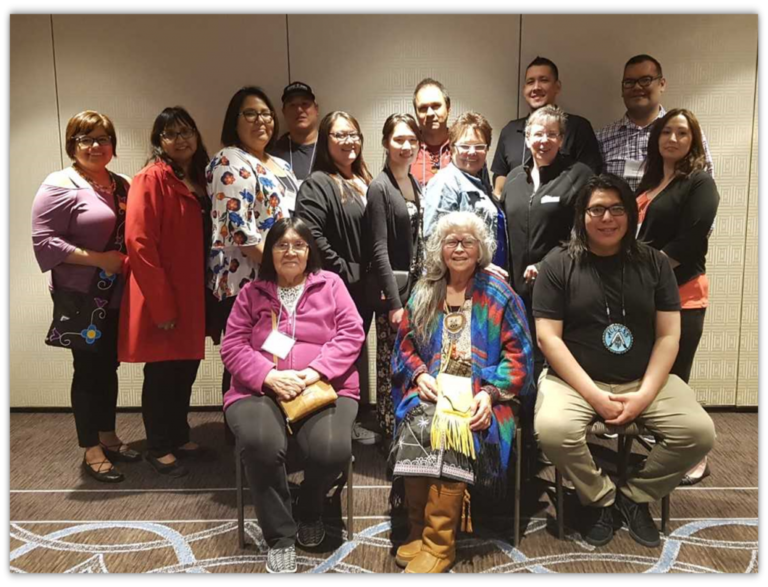
-
Updates
Congratulations to the ACCESS Open Minds Indigenous Council!
The Council is the successful recipient of an Indigenous Gender and Wellness Development Grant from the CIHR. This one year, $75,000 grant will allow the participating communities to explore, map and develop a program geared towards building and strengthening healthy relationships in Indigenous communities. Congratulations to everyone that contributed to this great initiative! Click here for more information about CIHR’s Indigenous Gender and Wellness Initiative.
-
Perspectives
Gregory Brass, Co-Chair of the Indigenous Council, sat down with us to share his thoughts on ACCESS Open Minds and the Indigenous Council. He is Anishnawbeg and a member of Keeseekoose First Nation in Saskatchewan.
Mistissini’s ACCESS Open Minds services, known as Aaschihkuwaataauch ᐃᔮᔅᒌᐦᑯᐧᐋᑖᐅᒡ which translates to ‘providing help urgently when people are in need’ provides an important and timely opportunity for the Cree Nation of Mistissini (CNM) as well as the Cree Board of Health and Social Services of James Bay (CBHSSJB) in general. The ACCESS OM initiative has given a place and the means to create and experiment with a localized and meaningful youth mental health services, for Eeyou youth and their families.
Generally speaking, people who live in the south and have limited experience with the realities of life in northern communities may not fully grasp the challenges that are associated with providing healthcare services in northern and isolated settings – even for the most basic healthcare services that people in large urban centres take for granted. It does not take very long to realize how complex medical services can be and, more significantly, why staffing key clinical roles is always an uphill struggle. Sadly, going without some very basic services or placing a client on an unfathomably long waiting list are not uncommon clinical practices.
All community clinics in Eeyou Ischee face similar daily challenges to the Mistissini clinic: a steady rotation of visiting physicians, mostly from the south, coupled with missing and high turnovers of key personnel: nurses, social workers, community workers, technicians, administrative staff, and other staff essential to the normal functioning of a clinic. In spite of this, the local community clinics manage to deliver the necessary care to help their patients manage chronic diseases, like diabetes, triage emergencies cases when those happen and deal with a host of other clinical needs.
When it comes to mental health services the reality described above is starker. The most serious mental health disorders and psychiatric emergencies that require immediate intensive treatment and periods of stabilization are usually addressed in Montréal, most often at the Douglas Hospital. Once stable and able to return to the community, a patient with a diagnosed mental health disorder will depend on the local clinic and occasional and brief follow-ups with a visiting psychiatrist. Beyond that, there are no consistent specialized services locally available for those living with a mental illness or needing mental health support. Telehealth services are more available now but they are not always a good substitute for face-to-face interactions, especially during periods of vulnerability. For other mental health challenges, like anxiety, depression, dealing with trauma, and complex emotional / relationship issues, there are visiting therapists and psychologists who provide about 10 days of service per month. Unfortunately, the waiting list for an appointment to see these clinicians is in the hundreds and backlogged by many months. Furthermore, while it is possible to have access to mental health practitioners in Montréal or other urban centres – and there is a steady stream of referral requests for this service – these are not always approved due to funding constraints for travel support along with other legitimate clinical reasons.
In many respects, the CNM and CBHSSJB are already doing many great things with and for local youth. The CNM organizes a wide array of programs and services, runs important trainings and workshops, like grief camps, ASIST, and Mental Health First Aid. They work closely with Elders and members of the local faith community. The CNM sports and recreation department does an excellent job at engaging youth in formal organized sports, built biking and skateboard parks, sponsored activities like yoga, martial arts and cooking classes. When it comes to land-based programs, such as snowshoe journeys, canoe brigades and traditional activities and gatherings, the CNM, CBHSSJB and other Cree entities have supported these kinds of interventions for years and could very well be among the earliest forerunners of this innovative Indigenous approach to wellness. The Cree Nation Government has supported the work of the Cree Nation Youth Councils for decades, empowering Eeyou youth with a strong voice; the Mistissini Youth Council is among the most active.
Acute mental health crises affect every community and mental illnesses can hit families very hard – in this respect, Mistissini is no different. Eeyou youth experience severe anxiety, depression, and traumatic events. Sadly, suicidal ideation and attempted suicides happen too often in the community; the local clinic has its limitations and can become overwhelmed by multiple crises. Like every Eeyou community what Mistissini lacks is a reliable and responsive mental health service, let alone one specifically geared towards youth. In many respects, despite all the good things Mistisisini is doing and succeeding at, youth mental health services remains that important missing link.
The goal of Aaschihkuwaataauch is to foster the development of a meaningful and responsive mental health service for youth and their families. So far, our efforts seem to be working. We have created a more reliable mental health service, staffed by two art therapists and, until recently, a psychologist. We are working towards finding a replacement for that clinical position. Increasing numbers of youth and their families are coming to see the visiting clinicians at the Family Resource Centre where Aaschihkuwaataauch is located. We have even offered services to a few younger age clients and accommodated some from outside of Mistissini. Just recently, we decided we will formally extend our offer of services to several nearby Eeyou communities – Ouje Bougoumou, Waswanipi and Nemaska. Instead of sending clients to Montréal these communities can send them to Mistissini, a community setting that is more familiar and where they are more likely to have family, friends and a web of support.
Now that the ACCESS OM project has passed its halfway point, we have begun discussions with key departments within the CBHSSJB to determine a path to sustainability. At this point, we must rely on contract services for our visiting clinicians. Of course, this is not an ideal arrangement but it was a decision made out of necessity. The longer-term vision is to have full time salaried clinicians in place – a future direction that will ensure Aaschihkuwaataauch’s sustainability in Mistissini. If we succeed here then we will have a template to work from to create similar services throughout Eeyou Istchee and ensure that all Eeyou youth and their families have an opportunity to access mental health services.
One final point I would like to mention concerns the Report of the Truth and Reconciliation Commission of Canada and its call for action. Though sometimes difficult to read, it is a dignified and illuminating report about a dark and undignified historical event in Canada. Its messages are important, timely and, above all – enduring. Everyone – Indigenous and non-Indigenous – should read the report and take some time to understand its recommendations and consider how to act on them in our daily lives.
-
Members
- Elders, youth, and ACCESS Open Minds site members from Eskasoni First Nation (Nova Scotia), Elsipogtog First Nation (New Brunswick), Mistissini Aaschihkuwaataauch ᐋᔅᒌᑯᐧᐋᑖᐅᒡ (Québec), Puvirnituq (Nunavik, Québec), Sturgeon Lake First Nation (Saskatchewan), Ulukhaktok (Inuvialuit Settlement Region, Northwest Territories)
- Two members of ACCESS OM Central Office: Director of Services and Engagement, Stakeholder Engagement coordinator
-
Mandate & Responsibilities (Detailed)
Mandate
To provide leadership, information, knowledge, and advice to the ACCESS OM Network and to other interested parties respecting any matter affecting or pertaining to Indigenous people, relevant to the purpose and duties of the ACCESS OM Network including:
- Indigenous rights, culture, traditions, history and circumstances;
- The needs, values and expectations of Indigenous communities in relation to youth mental health and social determinants of health;
- Priorities, objectives, programs and strategies to achieve ACCESS OM core objectives (early identification, rapid access, appropriate care, continuity of care, youth engagement, family engagement), the integration of research into clinical practice and data collection;
- Sustainability plans for ACCESS OM;
- Ownership, Control, Access and Possession (OCAP) principles;
- Truth and Reconciliation Commission of Canada (TRC) recommendations;
- Build relationships and disseminate knowledge derived from ACCESS OM data trends from Indigenous communities to advocate and build capacity with Indigenous communities and interested parties;
- Advocate, promote and encourage Indigenous researchers and Indigenous youth researchers.
Responsibilities
- To consider the needs of Indigenous communities, best practices in Indigenous youth mental health service provision, research and evaluation.
- To advise ACCESS OM leadership on strategies and opportunities to better serve Indigenous youth and their families/carers within the scope of ACCESS OM.
- To advise NPI on issues arising from the project.
- To identify linkages with other initiatives and share information with/about the ACCESS OM Network to interested parties and Indigenous communities in consultation with the NPI for the purpose of sustainability.


